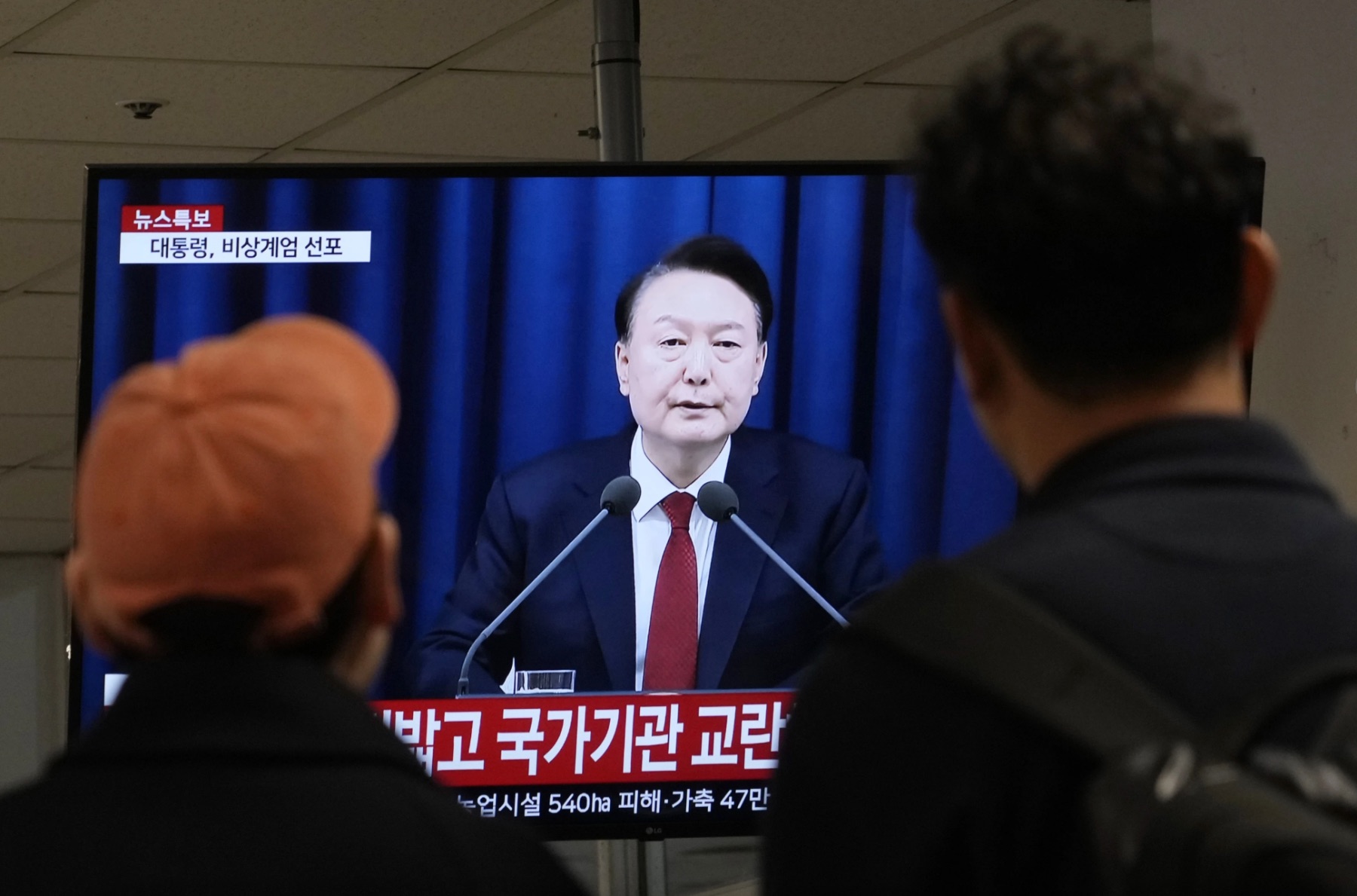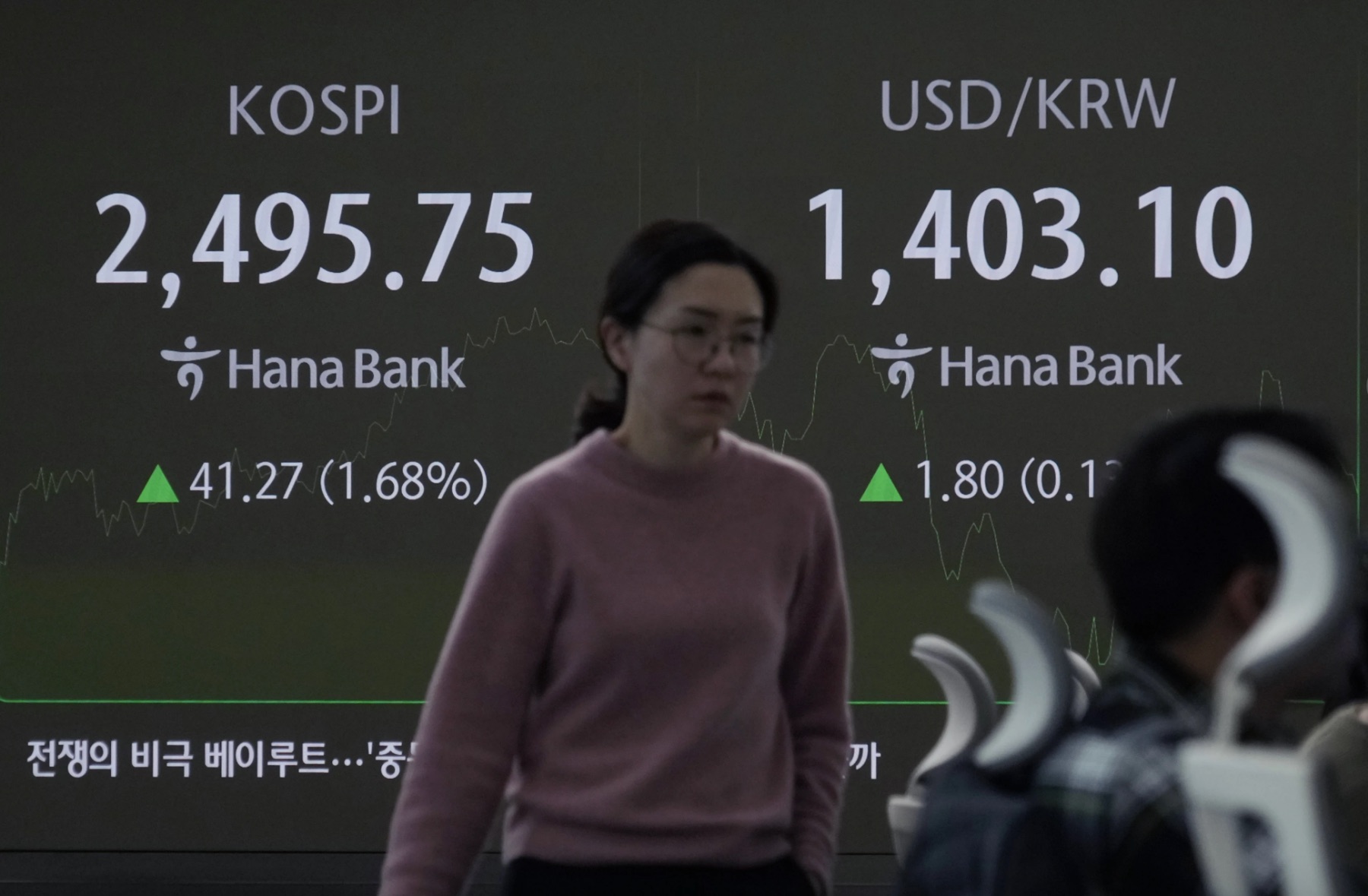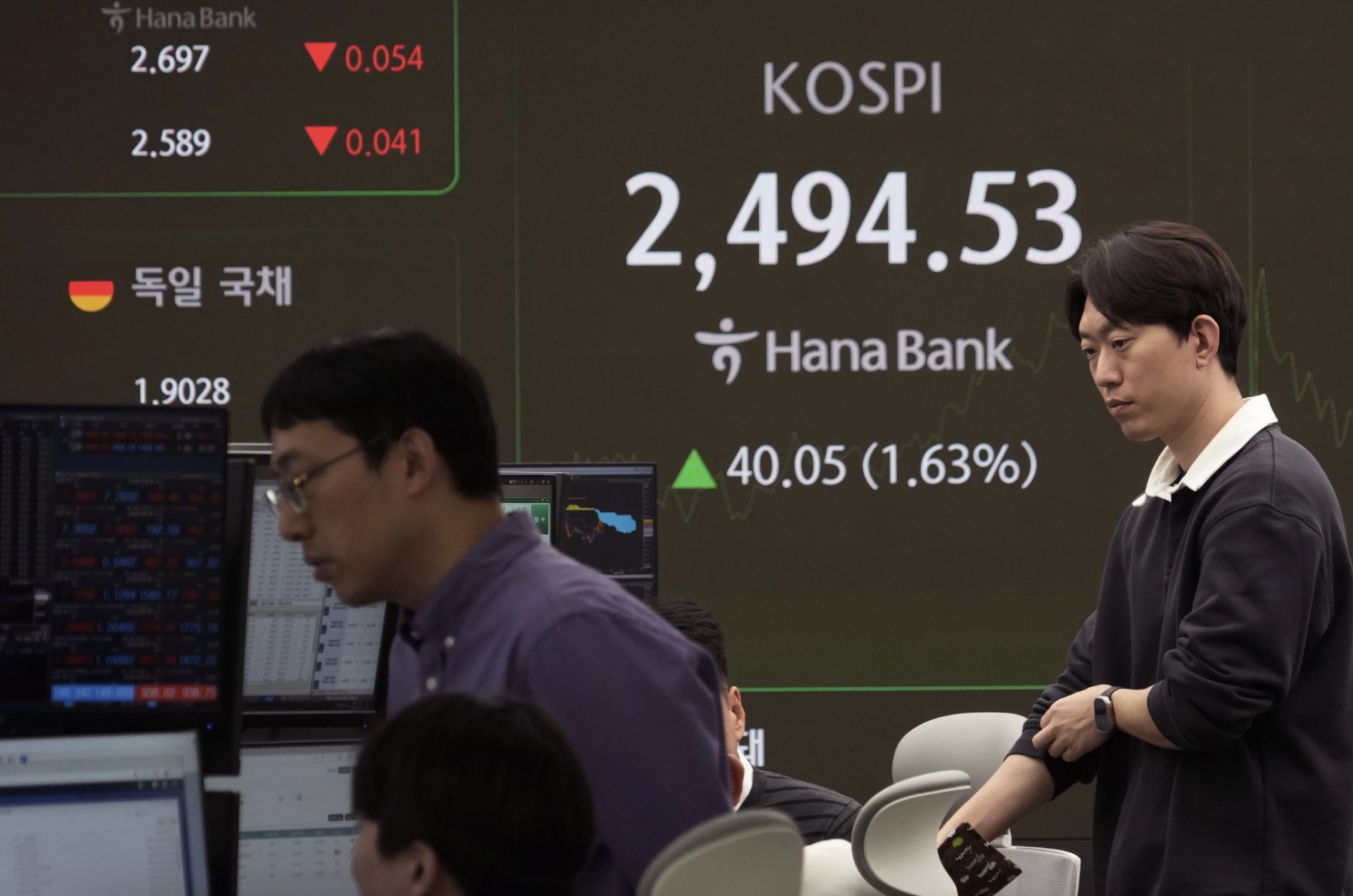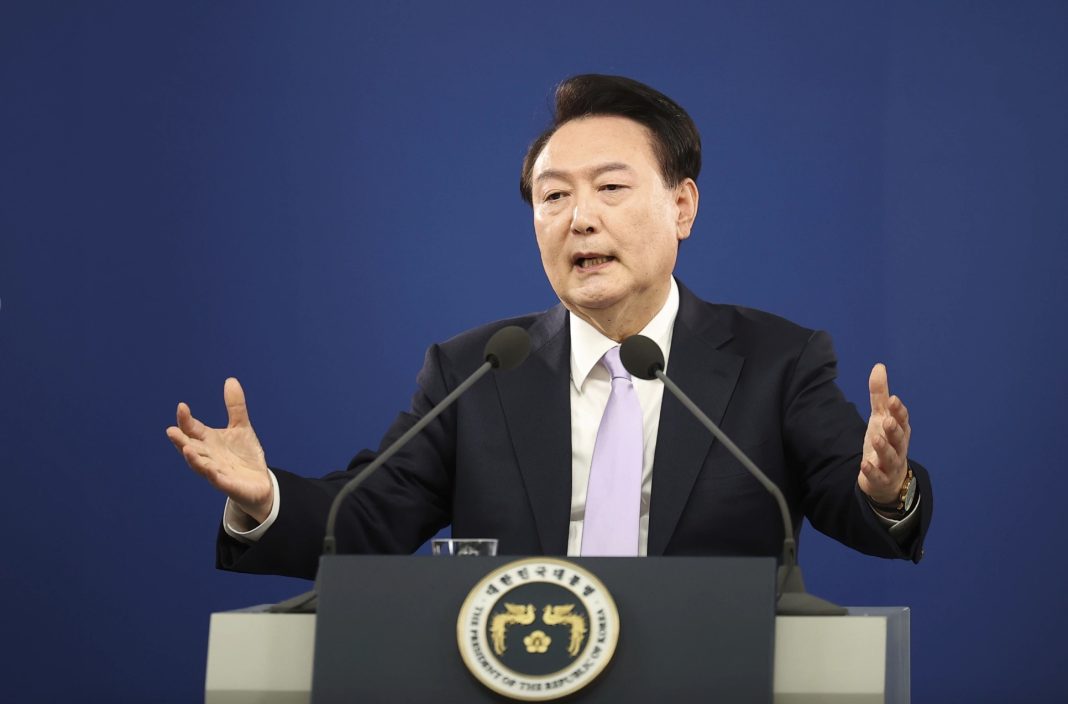SEOUL, South Korea – South Korean President Yoon Suk Yeol reversed his unprecedented decision to declare martial law on Wednesday, December 3, 2024, following a swift and intense backlash from parliament and the public.
The dramatic move had plunged the country into political turmoil, with lawmakers rushing to the National Assembly and quickly passing a resolution to nullify the martial law order just hours after Yoon’s announcement.
In a televised address, Yoon conceded to the National Assembly’s demand to lift the martial law, ending a standoff that had gripped the nation since Tuesday night.
“I have accepted the decision made by the National Assembly to dissolve and lift the martial law,” Yoon said, signaling the conclusion of a highly charged political crisis.
The declaration of martial law came after Yoon accused opposition parties of aligning with North Korea and undermining the country’s government.

“I am declaring a state of emergency to protect the constitutional order based on freedom and to eradicate anti-state groups that are threatening our national security,” Yoon said in his initial address, justifying the controversial move by citing threats from North Korea.
Yoon’s statement was followed by a harsh proclamation from the Martial Law Command, which imposed sweeping controls on political activities, media, and public gatherings.
Violators were warned they would face arrest and detention without a warrant.
This heavy-handed approach triggered immediate protests outside the National Assembly, as well as widespread condemnation from political leaders, including opposition leader Lee Jae-myung, who called the martial law declaration “illegal and unconstitutional.”
The resolution passed by the National Assembly, with 190 of its 300 members present, rejected Yoon’s actions and nullified the martial law.
The ruling People Power Party, to which Yoon belongs, found itself in disarray as Han Dong-hoon, the party’s leader, publicly criticised the move as illegal.
He stated that the use of military force against the government’s own legislature was unjustifiable.
Despite the swift resolution by parliament, South Korea’s Defense Ministry initially maintained that martial law would remain in effect until formally lifted by Yoon.
This created a tense situation, with soldiers stationed at the National Assembly until they were ordered to withdraw in the wake of the resolution’s passage.
Although martial law was officially rescinded after just a few hours, the political and economic fallout was immediate.

The Korean won dropped sharply against the U.S. dollar, signaling investor unease about the stability of the government. Meanwhile, scuffles erupted outside the National Assembly between police and protesters opposed to the martial law declaration.
The dramatic escalation is the first instance of martial law in South Korea since 1980, a period marked by military dictatorship and political repression.
Despite the absence of tanks or widespread military presence on the streets, the situation drew concern from international observers, including the U.S. State Department and the Pentagon, both of whom were monitoring the situation closely.
Political analysts expressed surprise at Yoon’s decision to invoke martial law, especially considering his recent struggles with a parliament controlled by the opposition Democratic Party.
Yoon’s approval ratings have plummeted in recent months, largely due to his failure to push through key policies and the growing influence of the opposition.
The conflict over next year’s national budget and ongoing impeachment proceedings against top officials have further deepened the political divide.

“This is an extraordinary situation. It’s almost as if President Yoon went straight for the most extreme option first,” said Edward Howell, a Korean Foundation Fellow at Chatham House.
The decision to back down so quickly was seen by many as a sign of the overwhelming opposition to his actions, both within the National Assembly and among the South Korean public.
As tensions ease, Yoon faces the challenge of rebuilding his political standing and mending the rift with his opponents, who have been emboldened by the episode.
The incident has raised serious questions about the balance of power in South Korea and the limits of presidential authority in a democratic society.







